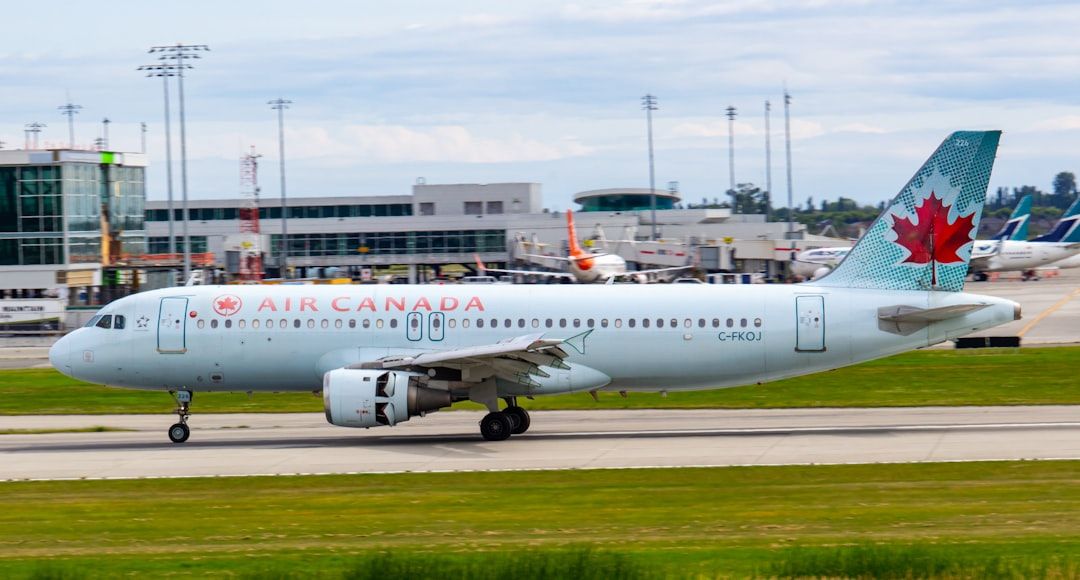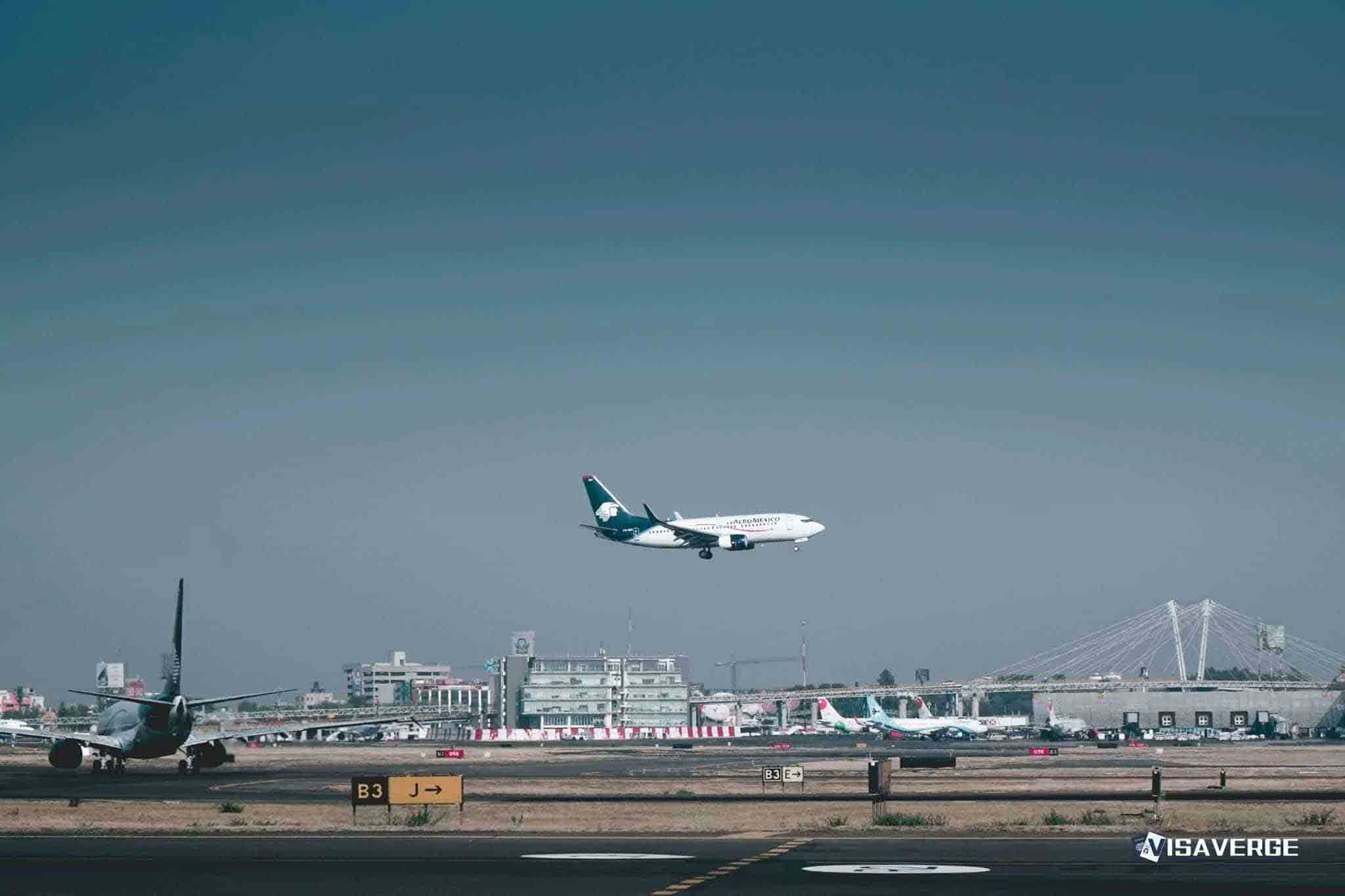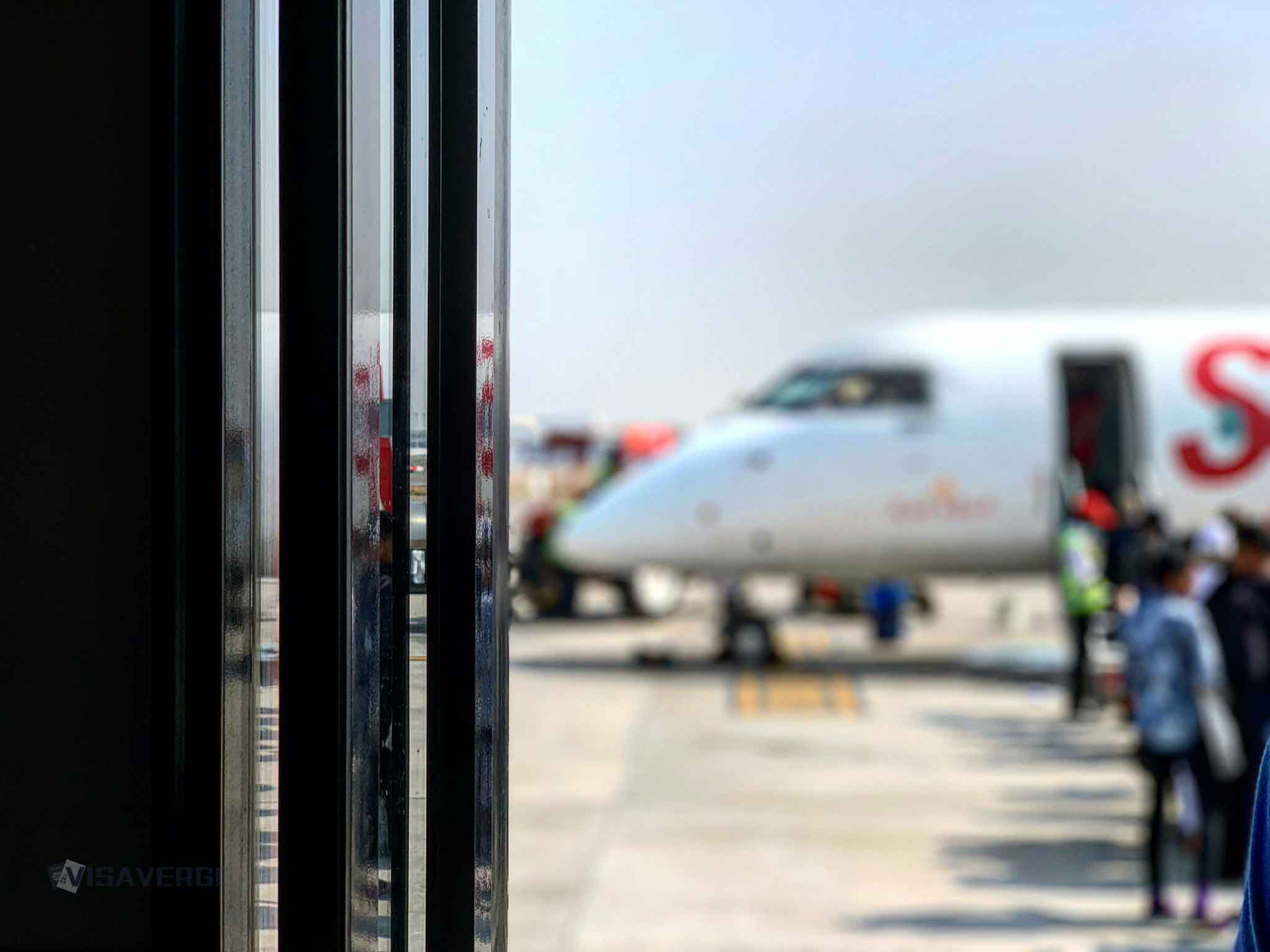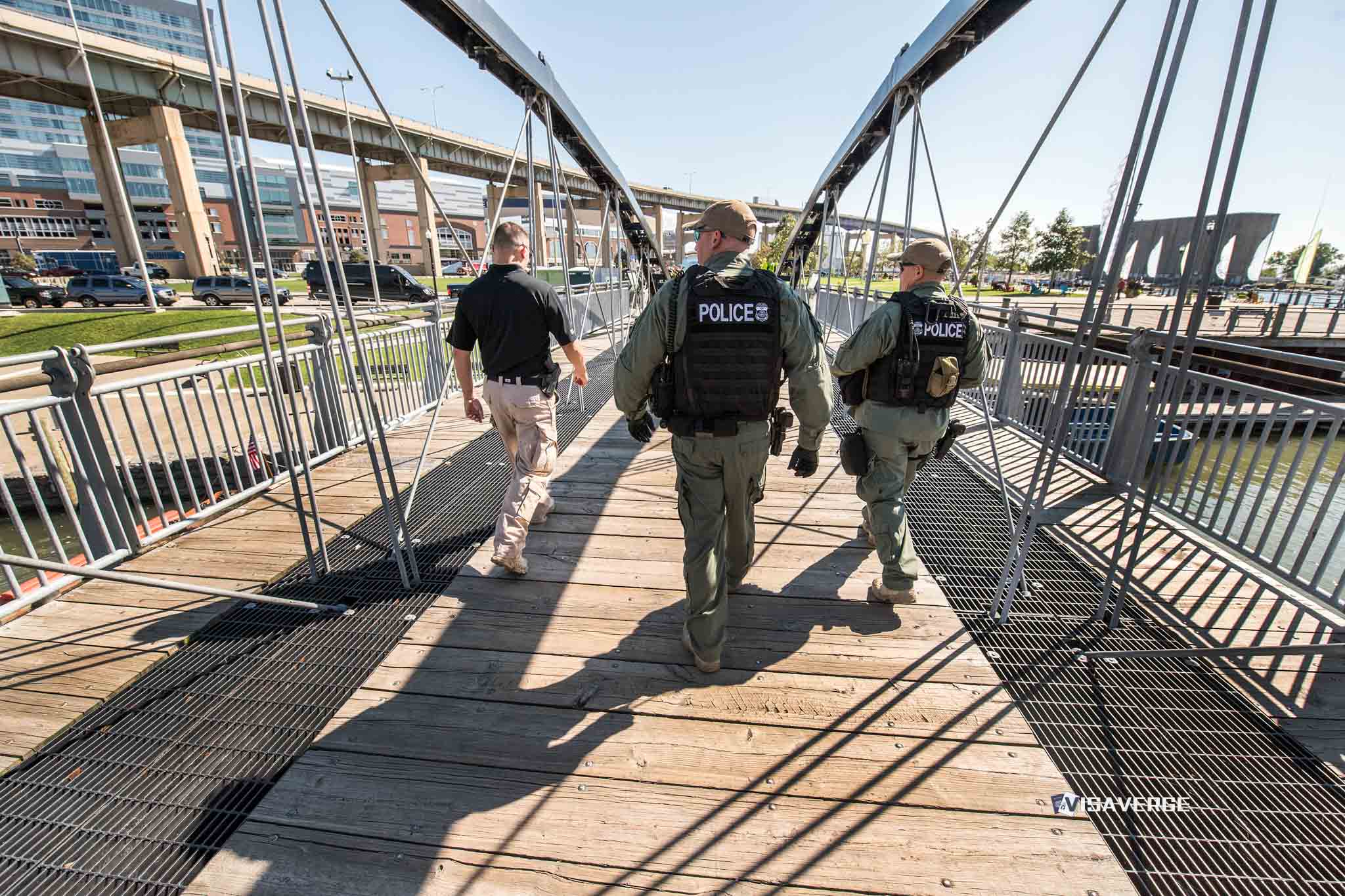Key Takeaways
• Air Canada flight delayed May 24, 2025, due to Canada’s shortage of air traffic controllers.
• Nav Canada reports retirements and slow training worsen controller shortages nationwide and internationally.
• Vancouver International Airport faces frequent delays and cancellations; no major policy changes announced yet.
On Saturday, May 24, 2025, passengers on an Air Canada flight from Vancouver International Airport to Montreal found themselves stuck on the tarmac, waiting for takeoff. What made this delay different from the usual travel hiccup was the pilot’s decision to speak plainly to everyone on board. He told the full cabin that the reason for the delay was a shortage of air traffic controllers—a problem that has been causing headaches for travelers, airlines, and airports across Canada 🇨🇦. This rare moment of honesty has sparked a national conversation about the ongoing air traffic controller shortage and what it means for the future of air travel in Canada 🇨🇦.
What Happened on May 24, 2025?

The incident took place at Vancouver International Airport, one of the country’s busiest travel hubs. Passengers had boarded their Air Canada flight, expecting a routine journey to Montreal. Instead, they waited on the tarmac as the minutes ticked by. The pilot, clearly frustrated, addressed the passengers directly. He explained that the delay was not due to weather, mechanical issues, or airline scheduling, but because there simply weren’t enough air traffic controllers available to safely manage all the flights.
This direct communication was unusual. Pilots often give general reasons for delays, but rarely do they point to specific staffing shortages in such a public way. The pilot’s comments quickly made headlines, drawing attention to a problem that has been building for years but has become especially severe in recent months.
Why Are Air Traffic Controllers So Important?
Air traffic controllers are the people who guide planes safely through the sky and on the ground. They tell pilots when it’s safe to take off, land, and move around the airport. Their job is highly specialized and requires intense training. Without enough controllers, airports can’t safely handle as many flights, which leads to delays and cancellations.
At Vancouver International Airport, the shortage has become so serious that both the airport and Air Canada have publicly confirmed it is causing more frequent delays and cancellations. According to analysis by VisaVerge.com, this is not just a local issue—airports across Canada 🇨🇦 and even in other countries are facing similar problems.
How Did We Get Here? The Background of the Shortage
The shortage of air traffic controllers did not happen overnight. Several factors have come together to create this situation:
- Retirements: Many experienced controllers have reached retirement age and left the workforce.
- Pandemic Disruptions: During the COVID-19 pandemic, training programs for new controllers were paused or slowed down. Some controllers also left the job due to health concerns or early retirement offers.
- Slow Recruitment: Training a new air traffic controller can take up to three years. This means there is a long gap between hiring someone and having them ready to work.
- Increased Travel Demand: As travel has bounced back after the pandemic, there are more flights and passengers than the current number of controllers can handle.
Nav Canada, the organization responsible for air traffic control in Canada 🇨🇦, has acknowledged these challenges. However, as of late May 2025, there have been no major new policy changes or announcements about how they plan to fix the shortage.
What Happens During a Delay Caused by ATC Shortage?
When there aren’t enough air traffic controllers, the process for handling flights changes. Here’s a step-by-step look at what happens:
- Flight Scheduled: The airline prepares the plane and crew for departure as usual.
2. ATC Notification: The airline receives a message from air traffic control warning that there may be delays because of staffing shortages. - Boarding and Taxi: Passengers board the plane, and the aircraft may move toward the runway, but it is often held in place until it’s safe to proceed.
- Pilot Communication: Pilots are required to keep passengers informed. In this case, the Air Canada pilot told everyone the real reason for the delay: not enough air traffic controllers.
- Clearance and Departure: Once air traffic control has the capacity, the plane is cleared for takeoff.
This process can lead to longer wait times on the ground, missed connections, and even flight cancellations if the delays become too severe.
The Impact on Passengers
For travelers, the most obvious effect of the air traffic controller shortage is longer and more unpredictable travel days. Passengers at Vancouver International Airport have reported:
- Long Waits on the Tarmac: Sitting in the plane for extended periods before takeoff.
- Missed Connections: Delays can cause travelers to miss connecting flights, leading to further disruptions.
- Cancellations: In some cases, flights are canceled altogether if the delays become too long.
- Uncertainty: Passengers are often unsure if they will be compensated or rebooked, as airlines like Air Canada have not announced clear policies for these situations.
Some passengers have praised the Air Canada pilot for being honest about the cause of the delay, saying it helped them understand the situation. Others are frustrated by the lack of solutions and worry about the reliability of air travel in Canada 🇨🇦.
The View from the Cockpit: Pilots Speak Out
Pilots are on the front lines of this issue. They are responsible for keeping passengers safe and informed, but they also face pressure from airlines and airports to keep flights on schedule. In recent months, more pilots have started to speak openly about the challenges caused by the air traffic controller shortage.
- Transparency: Some pilots, like the one on the May 24 Air Canada flight, believe it’s important to be honest with passengers about why delays are happening.
- Operational Challenges: Pilots must adjust their flight plans and schedules on short notice, which can add stress and complexity to their jobs.
- Safety Concerns: Above all, pilots prioritize safety. If there aren’t enough controllers to manage air traffic safely, they will not take off, no matter how frustrated passengers may be.
Airlines and Airports: Stuck in the Middle
Airlines like Air Canada and airports such as Vancouver International Airport are caught between the demands of travelers and the realities of the air traffic control system.
- Adjusting Schedules: Airlines must constantly change flight times and routes to adapt to the availability of air traffic controllers.
- Managing Expectations: Both airlines and airports are working to keep passengers informed, but the situation can change quickly, making it hard to provide clear answers.
- No Quick Fixes: As of now, Air Canada has not announced any new compensation or rebooking policies for passengers affected by these delays. The airline says it is working closely with Nav Canada and airport authorities to minimize disruptions.
The Role of Nav Canada and Government Regulators
Nav Canada is the private, non-profit corporation that manages air traffic control in Canada 🇨🇦. They are responsible for hiring, training, and deploying controllers across the country. Transport Canada is the government department that oversees aviation safety and regulations.
- Acknowledging the Problem: Both organizations have admitted that there is a shortage of air traffic controllers and that it is causing delays and cancellations, especially at busy airports like Vancouver International Airport.
- No New Policies Yet: Despite the growing problem, there have been no major new policies or funding announcements as of late May 2025.
- Training Pipeline: Nav Canada has said it is working to speed up recruitment and training, but it can take up to three years for a new controller to be fully certified.
For more information about air traffic control and aviation safety in Canada 🇨🇦, readers can visit the official Transport Canada website.
The Bigger Picture: A North American and Global Issue
Canada 🇨🇦 is not alone in facing air traffic controller shortages. Airports in the United States 🇺🇸 and Europe have also reported similar problems. The causes are often the same: retirements, slow training, and a surge in travel after the pandemic.
- Ripple Effects: When one major airport experiences delays, it can affect flights across the entire continent. For example, a delay at Vancouver International Airport can cause problems for connecting flights in Toronto, New York, or London.
- Industry Warnings: Aviation experts warn that unless more is done to recruit and train new controllers, these disruptions could become the “new normal” for travelers.
What’s Being Done to Fix the Problem?
While there is widespread agreement that the air traffic controller shortage is a serious issue, solutions are not simple or quick.
Recruitment and Training
- Long Training Period: It takes up to three years to fully train a new air traffic controller.
- Recruitment Drives: Nav Canada is expected to increase hiring efforts, but it will take time for new recruits to make a difference.
- Retention Efforts: Keeping experienced controllers on the job is also a priority, as their knowledge is hard to replace.
Possible Policy Changes
- Increased Funding: Some industry observers believe the government may need to provide more money for training and recruitment.
- Regulatory Adjustments: Changes to training requirements or work rules could help speed up the process, but no concrete measures have been announced yet.
Improved Communication
- Transparency: Airlines and airports are being encouraged to be more open with passengers about the reasons for delays.
- Contingency Planning: Better planning can help minimize the impact of delays, such as by offering more flexible rebooking options.
What Should Passengers Do?
If you are flying with Air Canada or through Vancouver International Airport in the coming months, here are some practical tips:
- Check Flight Status: Always check your flight status before leaving for the airport. Delays and cancellations can happen with little warning.
- Allow Extra Time: Plan for possible delays, especially if you have connecting flights.
- Know Your Rights: Ask the airline about compensation or rebooking options if your flight is delayed or canceled.
- Stay Informed: Listen for announcements from pilots and crew, and check official airline and airport websites for updates.
Contact Information for Travelers
If you need help or have questions about your flight, you can contact:
- Air Canada Customer Service: 1-888-247-2262
- Vancouver International Airport: 604-207-7077
- Nav Canada (Air Traffic Control): 1-613-563-5588
- Transport Canada: 1-800-305-2059
Official websites for updates:
– Air Canada: aircanada.com
– Vancouver International Airport: yvr.ca
– Nav Canada: navcanada.ca
– Transport Canada: tc.canada.ca
Looking Ahead: What to Expect This Summer
Industry experts predict that the air traffic controller shortage will continue to cause delays and cancellations, especially during the busy summer travel season. Major airports like Vancouver International Airport and Toronto are likely to be most affected. While efforts are underway to recruit and train more controllers, it may be several years before the system returns to normal.
Passengers, airlines, and airports will need to remain flexible and patient as the industry works through these challenges. In the meantime, open communication—like the honesty shown by the Air Canada pilot—can help travelers understand what’s happening and why.
Conclusion: A Call for Action and Patience
The events at Vancouver International Airport on May 24, 2025, have put a spotlight on a problem that affects everyone who flies in Canada 🇨🇦. The shortage of air traffic controllers is not just an inconvenience; it’s a serious challenge that requires action from airlines, airports, regulators, and government officials. While there are no quick fixes, steps are being taken to address the issue. Until then, travelers should stay informed, plan ahead, and be prepared for possible delays.
As reported by VisaVerge.com, the situation is “unexpected” and “unprecedented,” but with continued attention and investment, there is hope that Canada’s 🇨🇦 air travel system will recover and become more reliable in the years to come.
Learn Today
Air traffic controllers → Professionals managing aircraft movements safely in the sky and on airport grounds.
Nav Canada → Private nonprofit managing Canada’s air traffic control operations and controller training.
ATC shortage → A lack of sufficient air traffic controllers to safely manage airport flight volume.
Flight clearance → Authorization from controllers allowing a plane to take off, land, or taxi.
Transport Canada → Government department overseeing aviation safety and regulations in Canada.
This Article in a Nutshell
On May 24, 2025, an Air Canada pilot openly blamed a shortage of air traffic controllers for delays. This rare transparency highlights Canada’s nationwide crisis impacting airports and travelers amid slow recruitment and increasing post-pandemic flight demand, with solutions still years away.
— By VisaVerge.com








